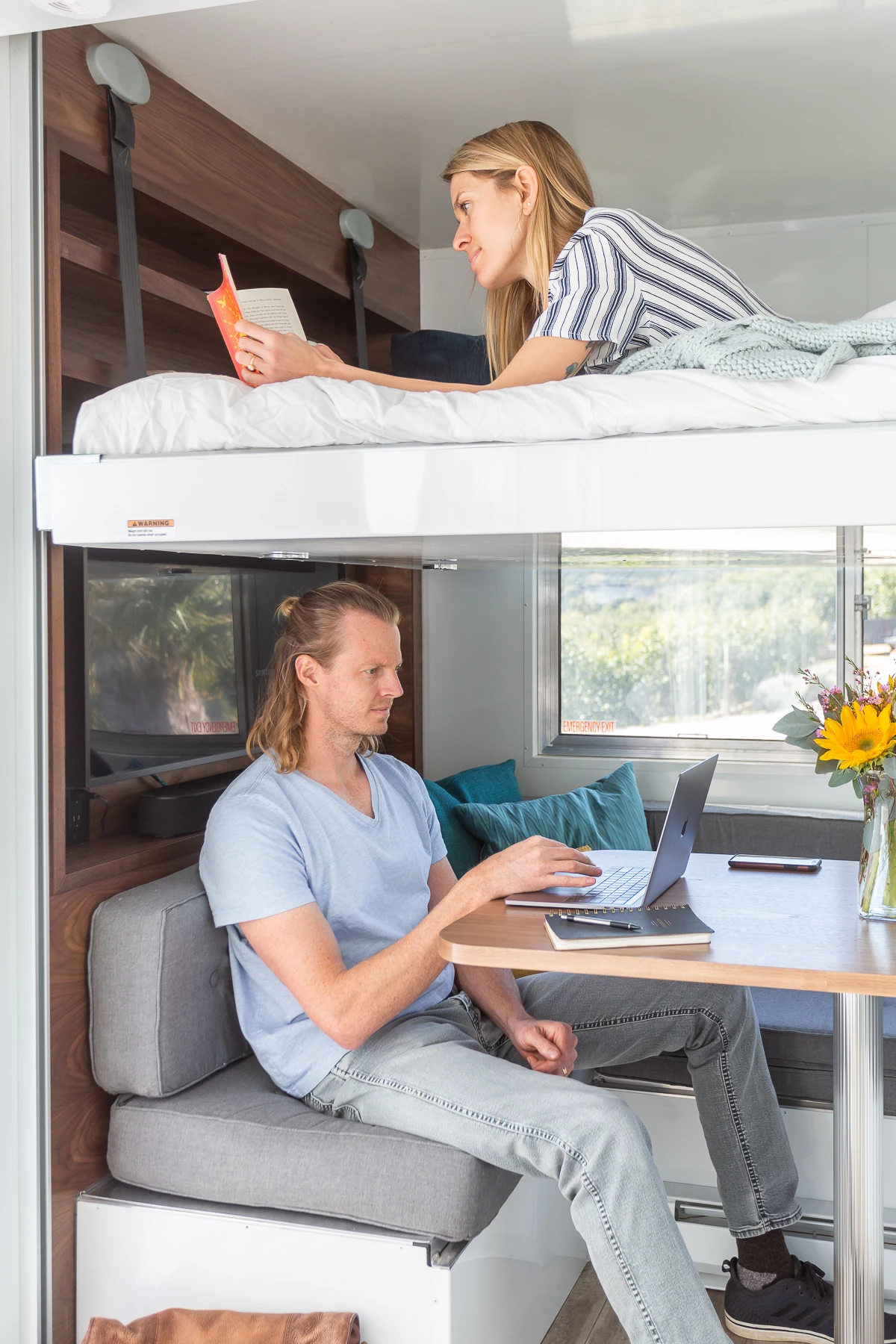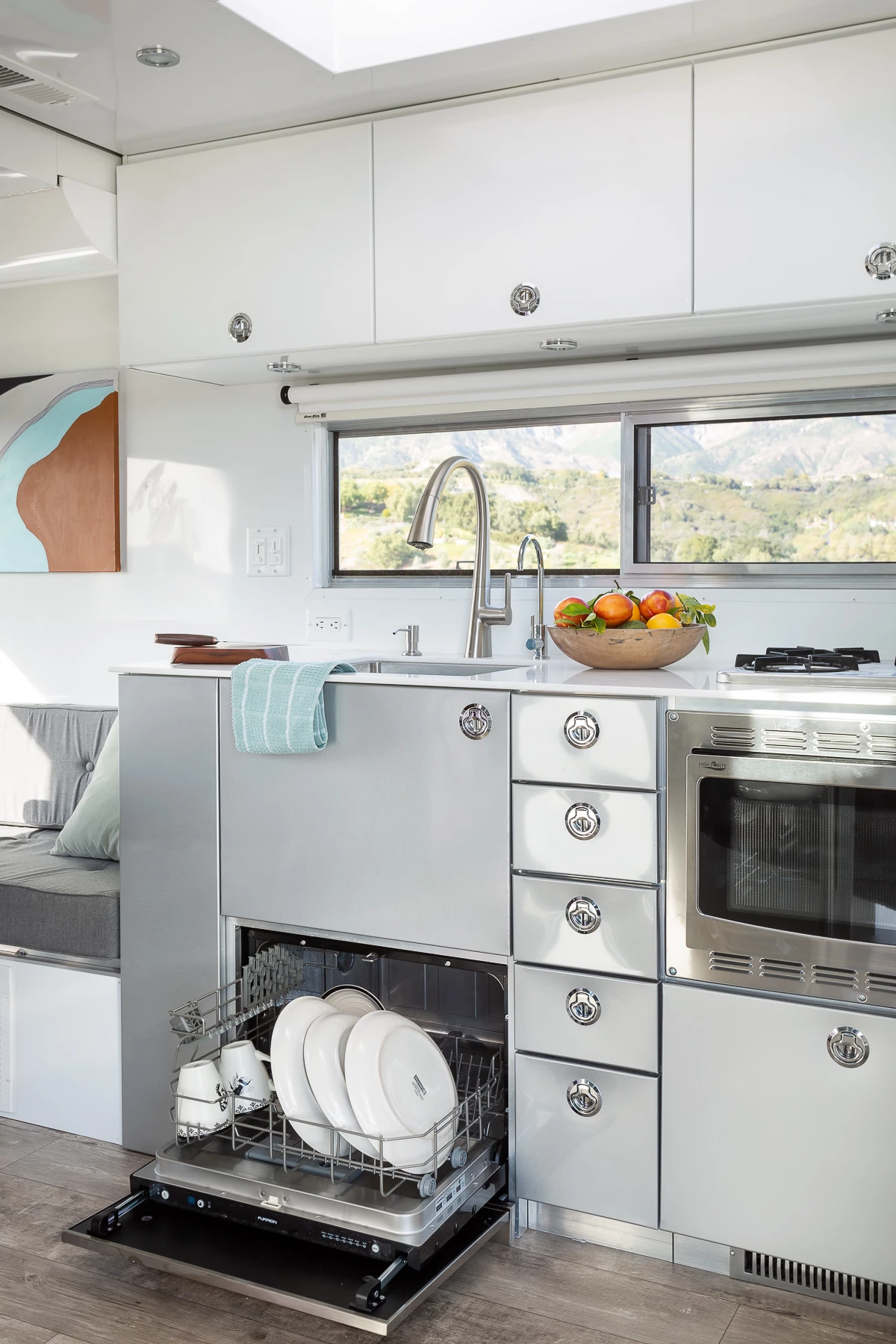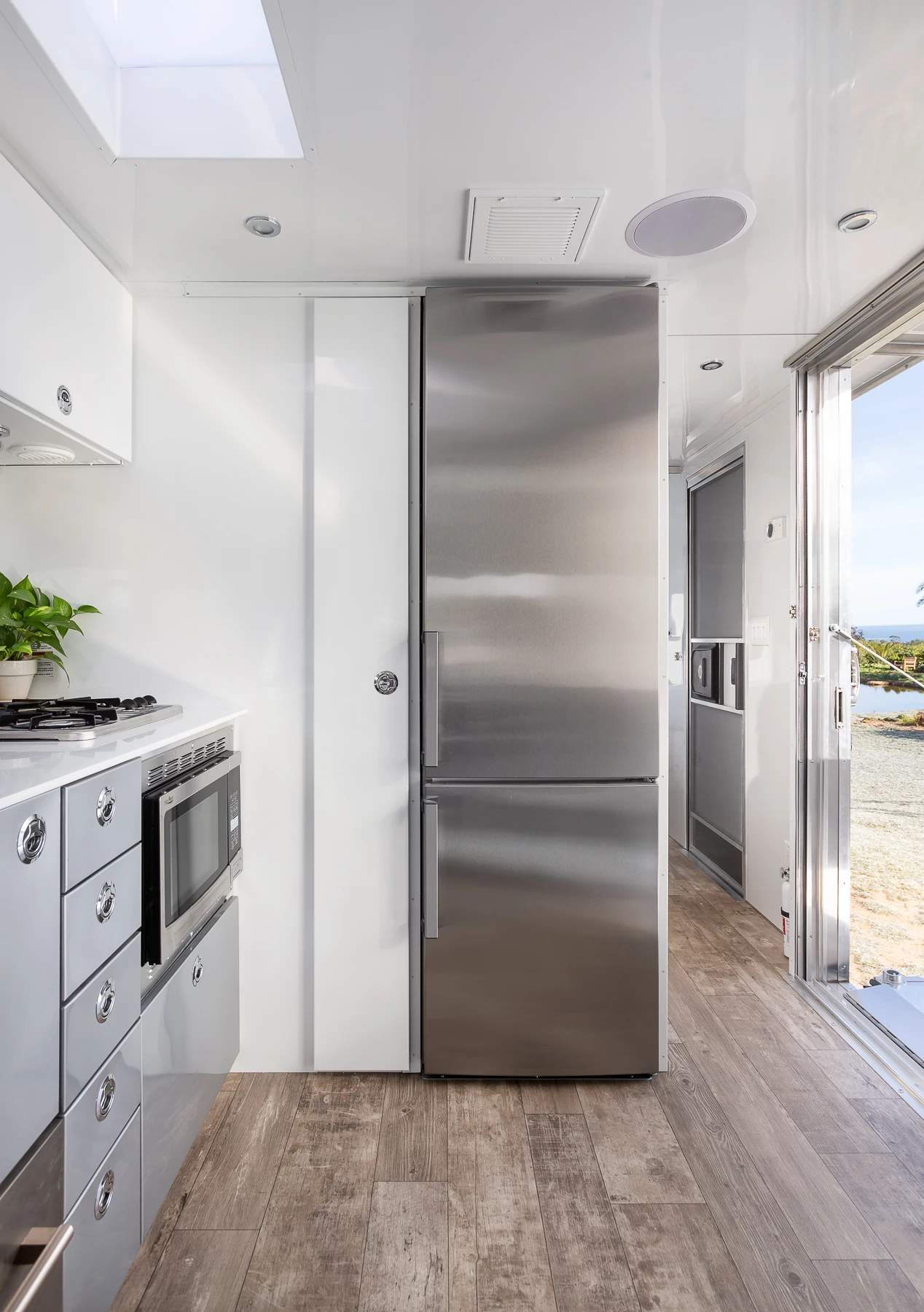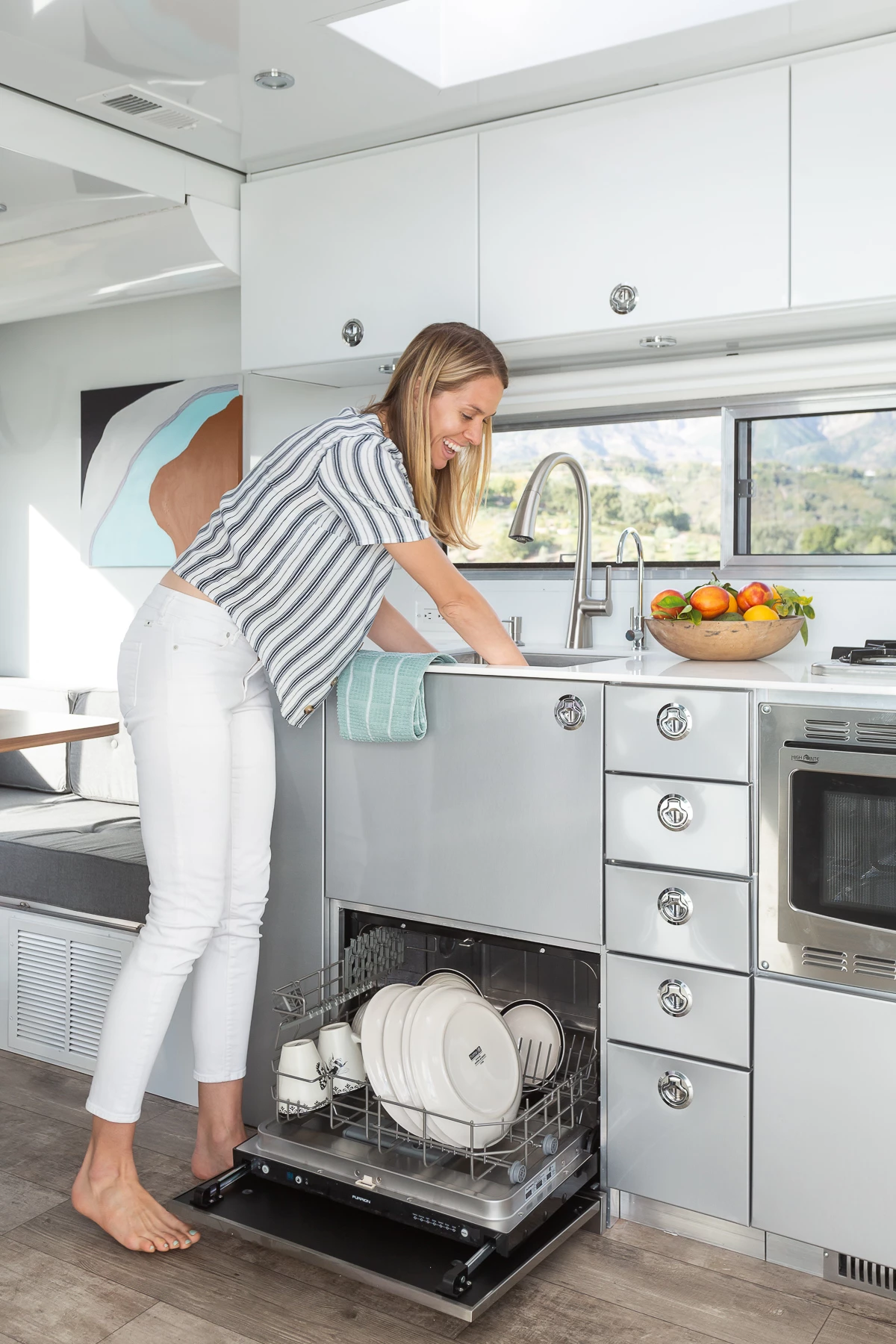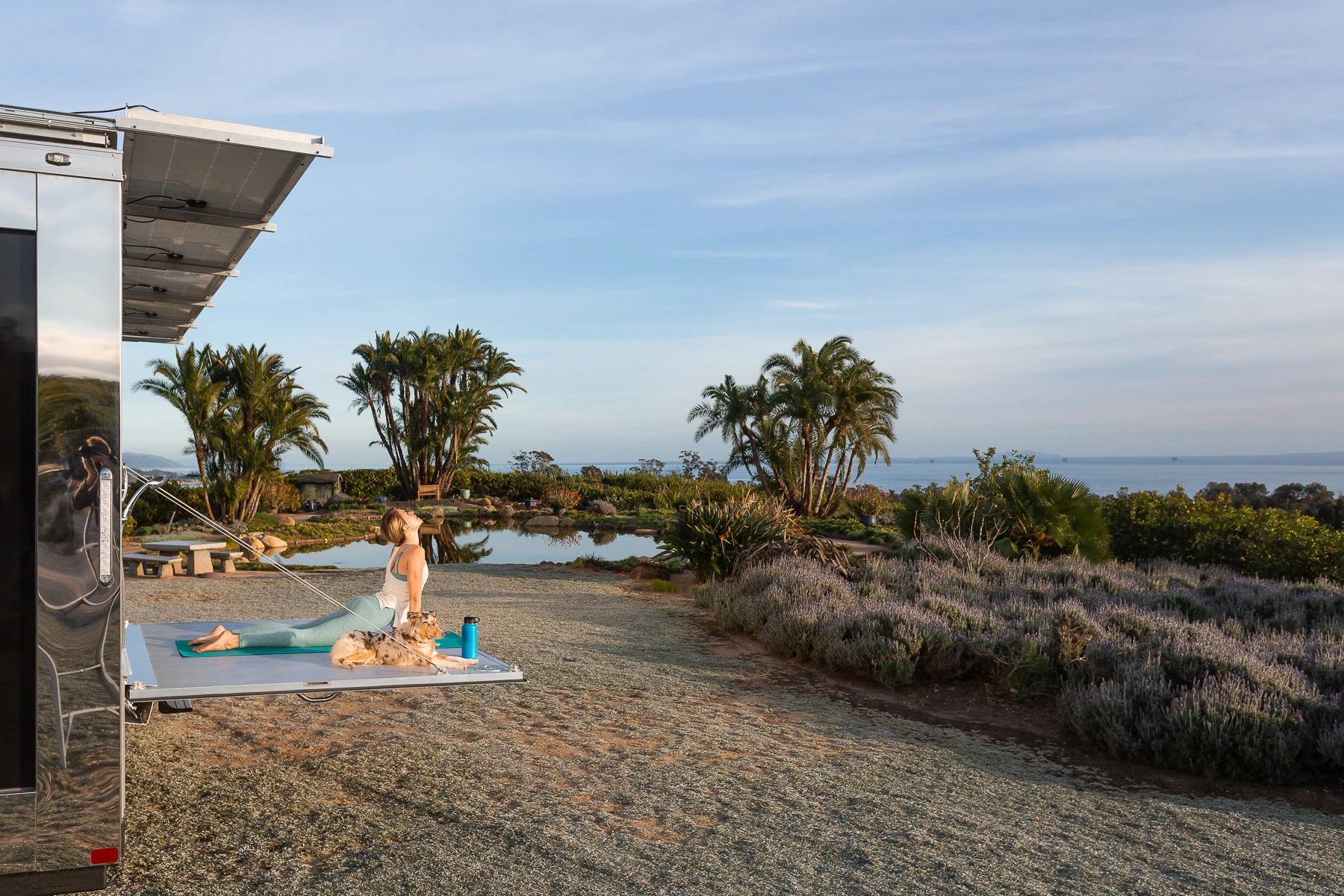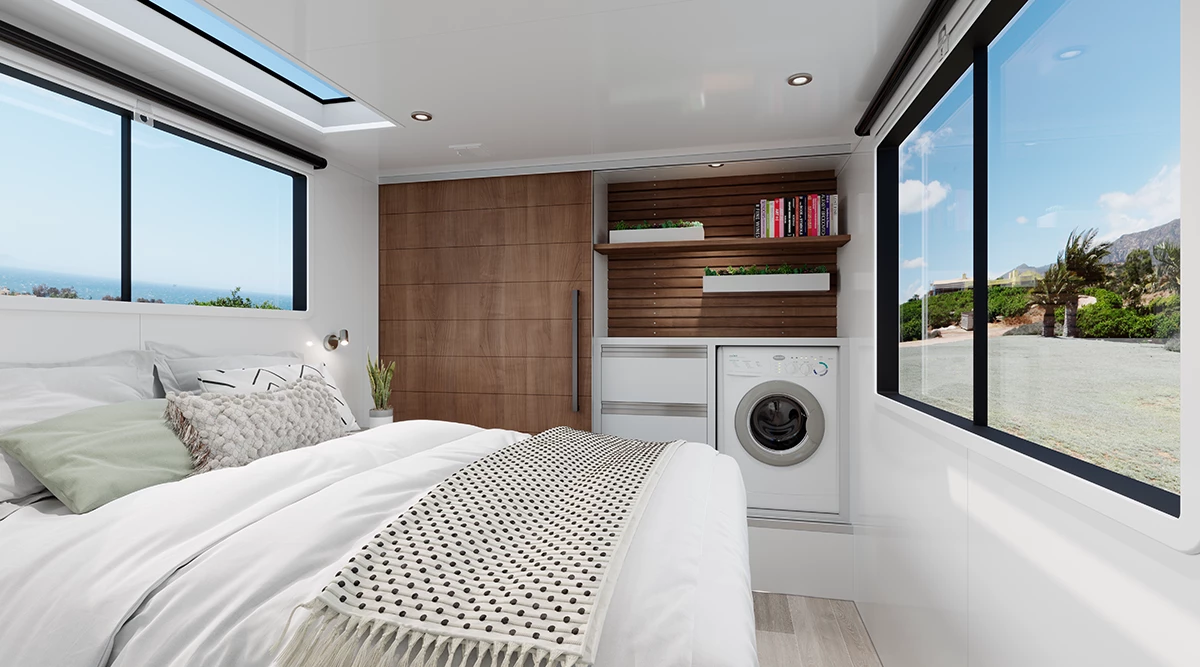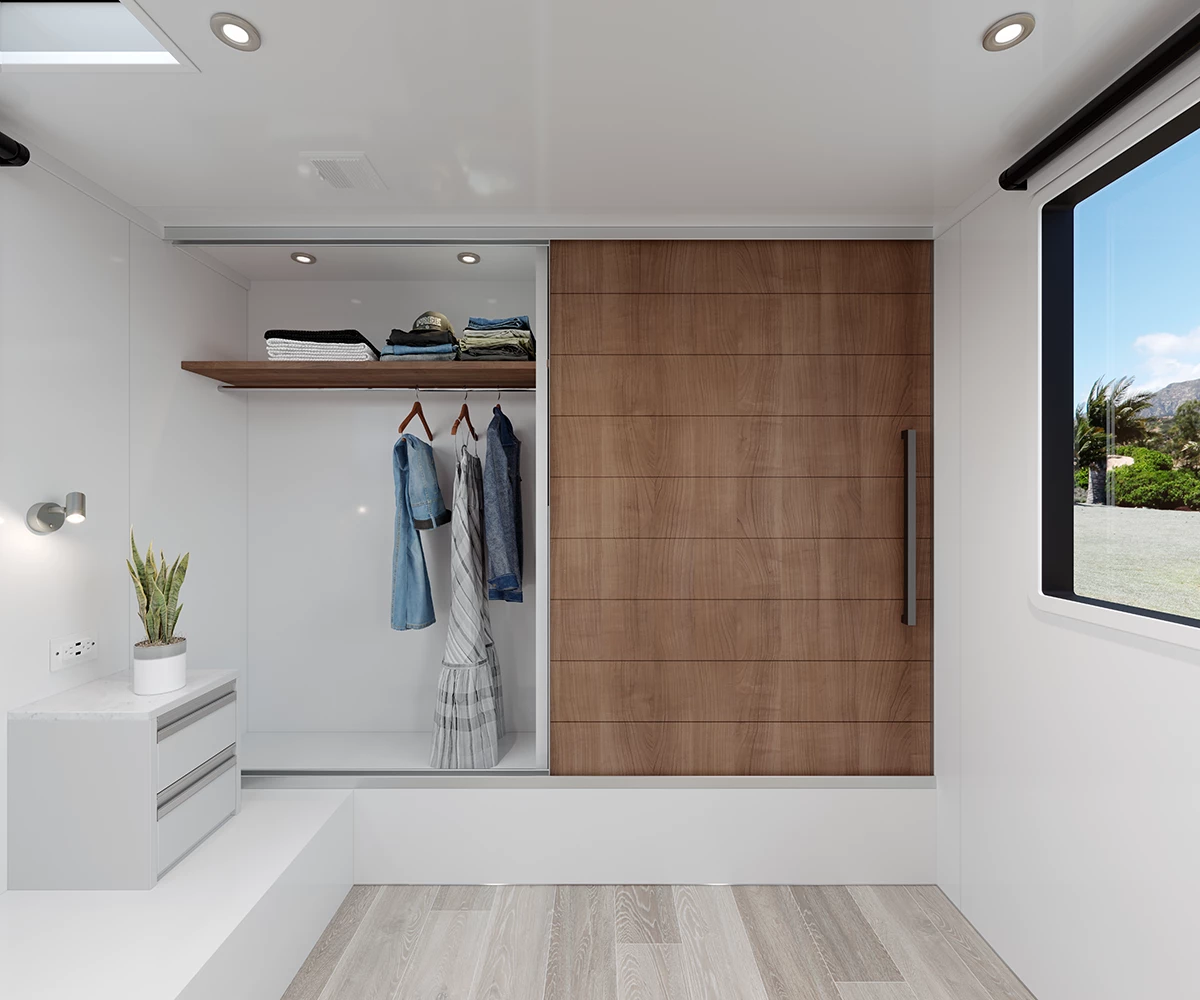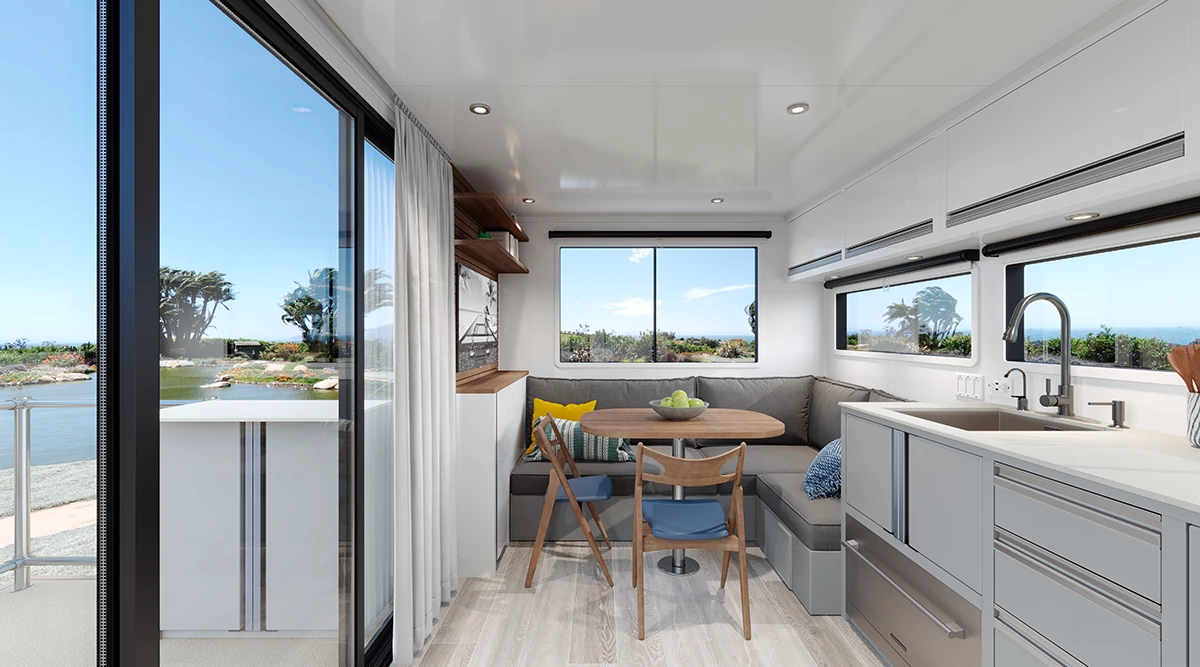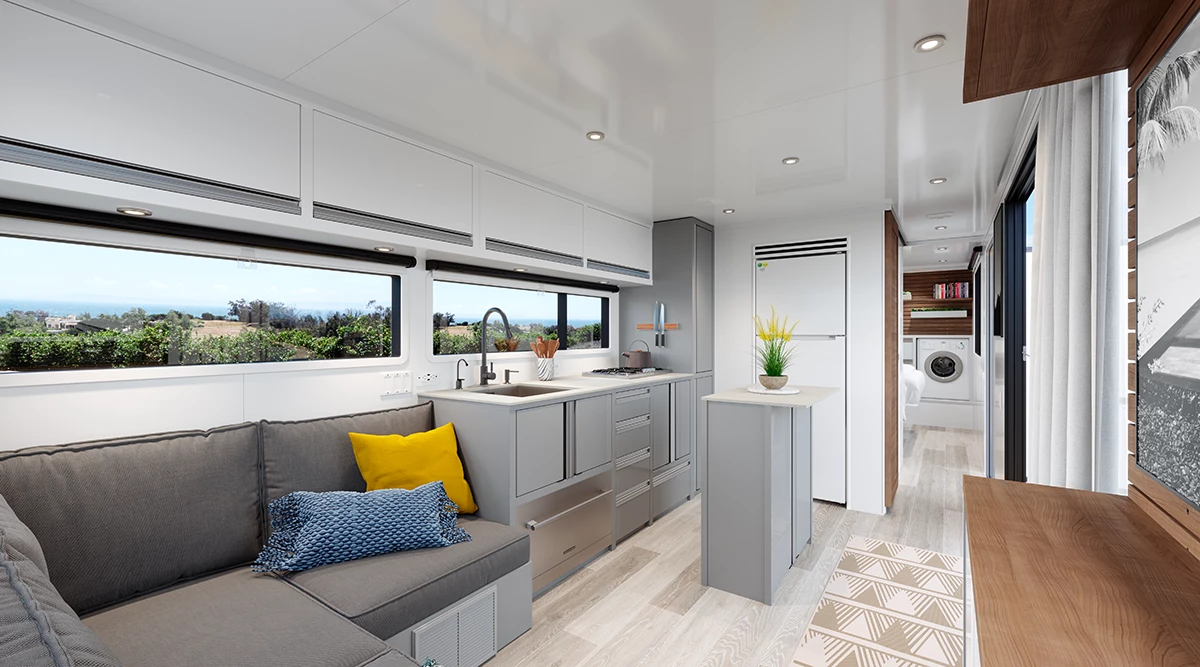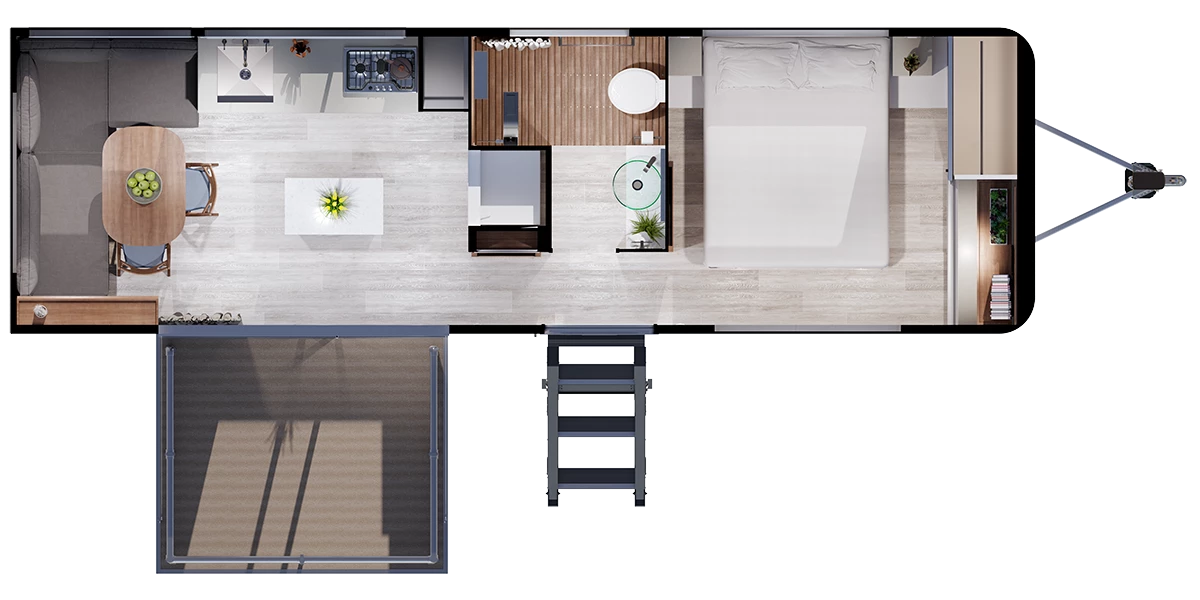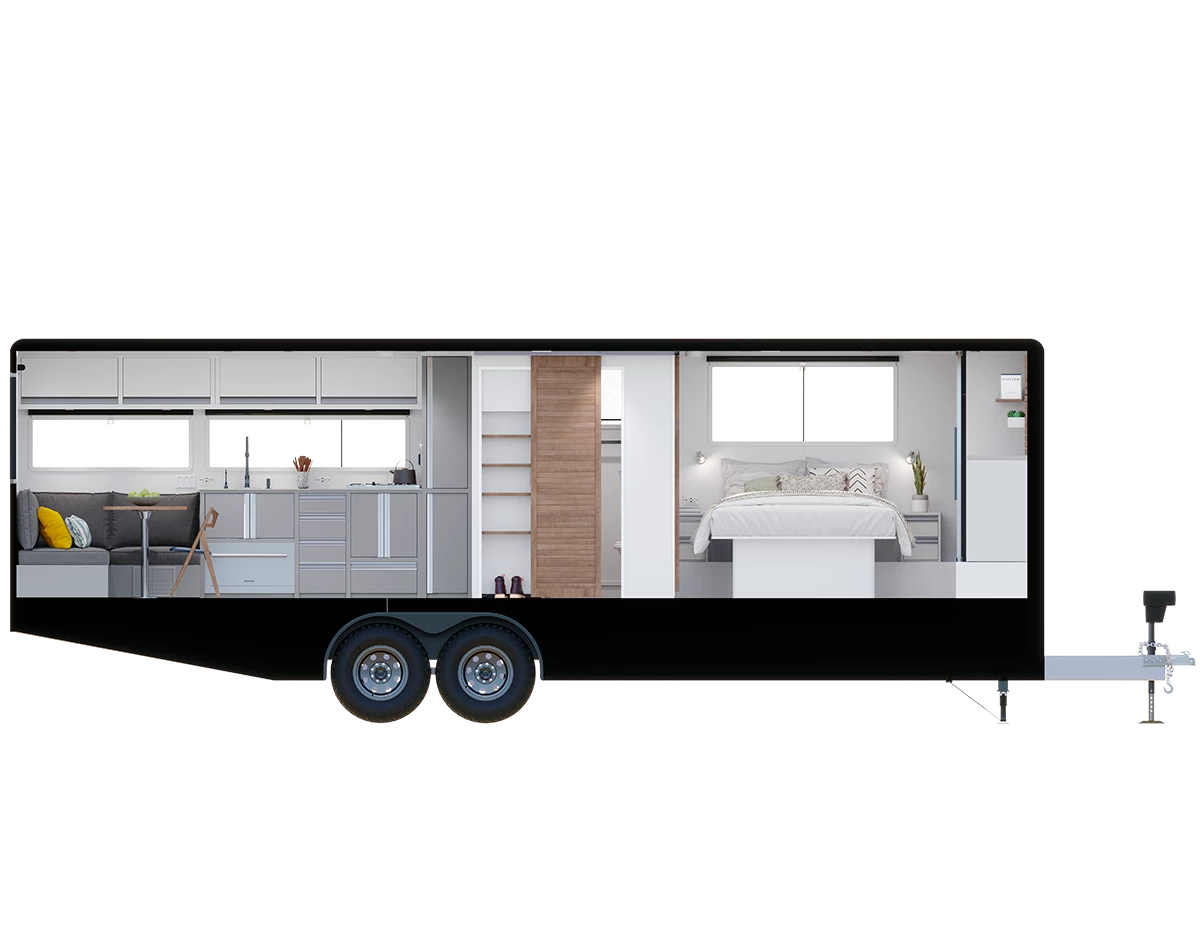California-based husband and wife duo, Matthew and Joanna Hofmann from Living Vehicle design studio, have recently revealed an impressive off-grid and net-zero mobile home. Dubbed Living Vehicle 2020, the travel trailer is a luxury mini-apartment boasting a unique shell made from 100 percent aluminum.
“I have a vision that this vehicle can fully sustain life and be fully self-sufficient,” Matthew Hofmann tells New Atlas. “That one day we can all travel around not bound by any one site, in a very freedom-driven life, where we get to choose where we want to live without a resource drain on our world. Our goal is zero energy in, zero waste out.”
Measuring 8 ft (2.43 m) wide and 27.6 ft (8.4 m) long, the Living Vehicle 2020 features a luxury 220-sq ft (20.43 sqm) interior and can accommodate up to six adults. The floor plan comprises an open living, dining and kitchen area; external pop-up terrace; private luxury bathroom; and extra large master bedroom. The mobile home is built with an all-aluminum structure, including the chassis, frame, exterior facade and interior cabinetry. The choice of material adds to the low maintenance of the trailer and its facade is deliberately designed to oxidize naturally over time, without the need for clear coatings or upkeep.
“The exterior skin is the most prominent feature, and comes in a beautiful mill finish from factory,” says Hofmann. “The raw, unfinished aluminum is a sort of 'Living Canvas' with our Mother Nature being the painter. Unlike steel, the outermost surface of aluminum reacts with air and water to form a passive and protective layer called Aluminum Oxide over the surface. This layer is only four nanometer’s thick and resembles a matte gray finish. This is the true beauty of aluminum. It protects itself, in harmony with Mother Nature.”
Living Vehicle 2020 is designed for all-year living and comes equipped with 1,200 watts of clean solar power, supplied by twelve 100-watt monocrystalline solar panels that are mounted on the roof. Incorporating a 3,600-watt power inverter at the core of the electric system, the mobile home is able to generate 8.7 kWh of power.
“We now embrace the technology of a new generation of solar panels,” says Hofmann. “Designed to be over 500 percent lighter than the rigid solar panels most common in the market today and coming in at only a fraction of an inch thick, each solar panel weighs only 7 lb (3.17 kg). These panels are adhered directly to the roof, requiring no additional penetrations in the aluminum roof sheet – reducing the long-term susceptibility to water infiltration.”
The ultra-thin solar panels are also designed to be impact-resistant and can withstand force from hail and falling debris.
The home comes equipped with an air conditioning unit capable of running off-grid during sunny days and even into the night. The curved roof provides the unit with an effective rain water management system and moisture protection. Furthermore, an on-demand tankless water heater is centrally located between the kitchen faucet and shower, providing prompt hot water at each fixture.
“With the ability to heat water down to a mere 0.4 GPM flow rate, and the capacity to operate well below freezing temperatures, off-grid use becomes significantly increased,” says Hofmann.
A highlight features of the mobile home is the fold-down, self-supporting deck that offers the home an external extension linking the indoor living area to the outdoors.That the deck is also designed to protect the sliding glass door while traveling on the road. The living/dining area is also jam packed with space saving options, including an additional elevated double loft bed, pop-down table, and comfy sofa that also converts into additional sleeping quarters. What really does feel like a mini apartment is complete with a full kitchen with large fridge, oven and dishwasher.
The home boasts a designer bathroom with a full shower complete with a skylight, giving the feeling of showering under the sun or stars. The hardwood floor-level deck extends into the bathroom, which can also be fitted with heated towel warmers, compost and electric bidet porcelain toilets on request.
“We have always had a knack for designing bathrooms in mobile environments,” says Hofmann. “Possibly per the strong direction of my wife, the bathroom is of utmost importance. Powered by a tankless water heater for endless showers, the rainfall shower head quickly converts to a low-flow shower set up for water conservation when operating off grid.”
The Living Vehicle 2020 starts at US$199,995 and buyers have the choice to include additional features from a series upgrade packages. First deliveries are currently scheduled for March, 2020.
Source: Living Vehicle




